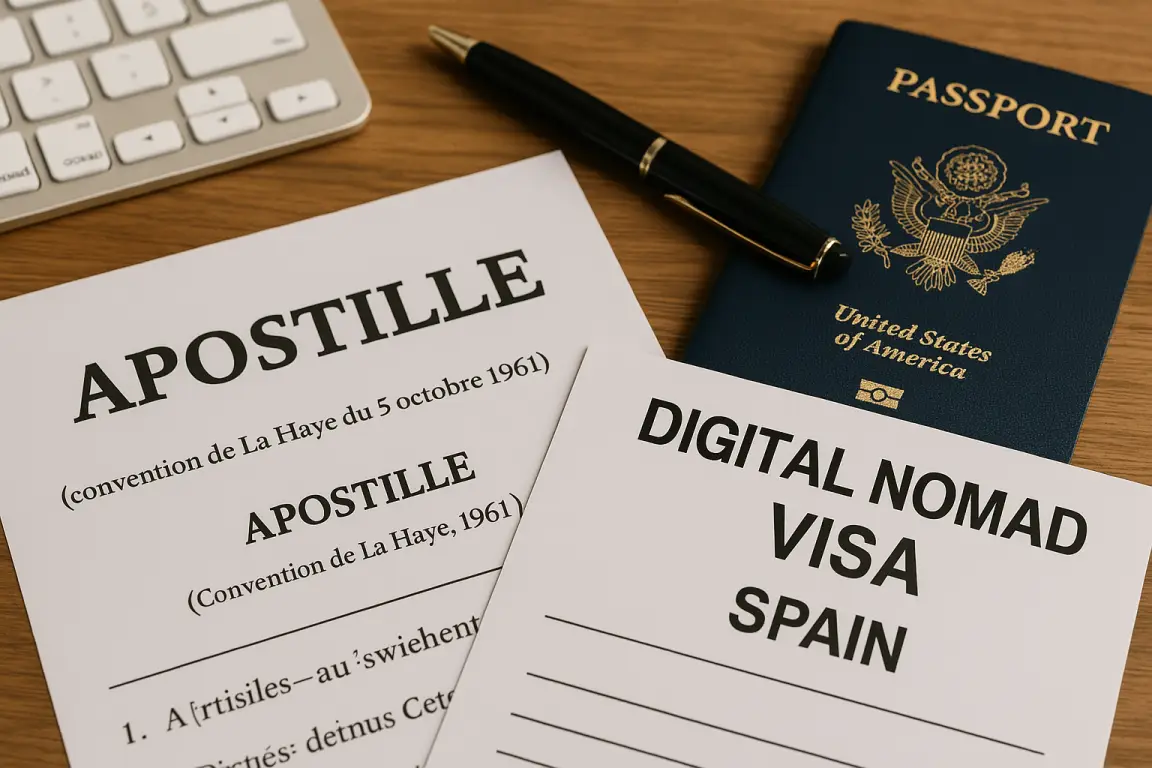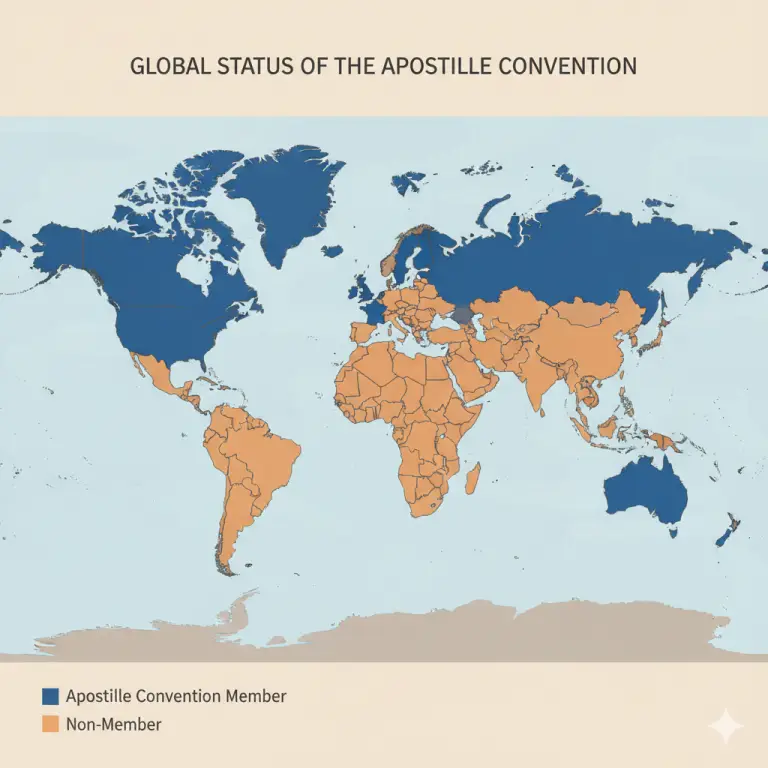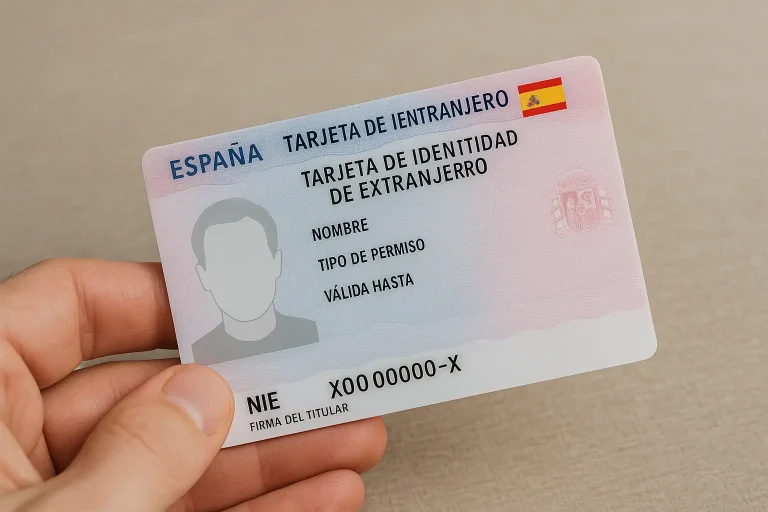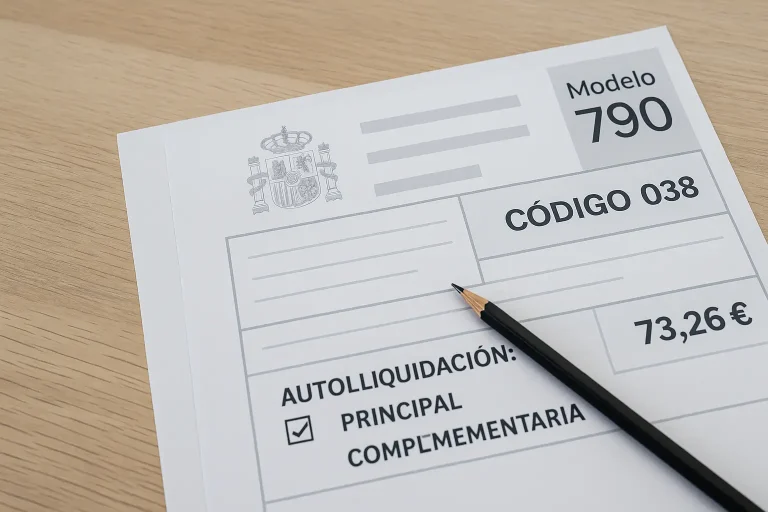
New Apostille guide for Spain Digital Nomad Visa 2025-2026
If you’re applying for the Digital Nomad Visa Spain, one of the key technical hurdles is making sure your foreign-issued documents are properly legalised, and translated into Spanish.
This guide explains which documents need an apostille, when it is not required, and how to do it step-by-step
Table of Contents
What Is an Apostille?
An apostille is an official certification used by countries that are part of the Hague Apostille Convention of 1961. It confirms that a public document (for example, a birth certificate or police record) is genuine so it can be used abroad — in this case, in Spain.
Official references:
When You Need an Apostille (and When You Don’t)
You need an apostille if:
Your document is issued outside Spain by a country that is:
- not covered by specific EU mutual-recognition rules.
- a member of the Hague Apostille Convention, and
- not part of the European Union, or
How to know if your country has joined the Hague Apostille Convention:
- Use the official status list on the Hague Conference on Private International Law website: Status-table Convention of 5 October 1961. hcch.net
- Use independent confirmed lists like the one hosted by the Netherlands Government site which references HCCH.
You do NOT need an apostille if:
- The document was issued within the European Union and thus falls under EU Regulation (EU) 2016/1191, which abolishes the need for legalisation or apostille between EU Member States for certain public documents.
For example:
- A criminal record certificate from Malta, Germany, France, Italy, or any EU Member State does not require an apostille to be recognised in Spain.
However:
- The document must be issued by an official EU authority.
- If it is not in Spanish, you must still provide a sworn translation,
unless you request a multilingual EU form (Formulario multilingüe) when available.
Even when apostille is not required, the document must still be translated into Spanish by a sworn translator unless it’s issued as a multilingual EU form.
What if Apostille Is Not Available (Non-Convention Countries)

If your country is not a member of the Hague Apostille Convention, you must go through the full consular legalisation process:
- Authentication by the Ministry of Foreign Affairs (or equivalent) of the issuing country.
- Legalise it at the Spanish Embassy or Consulate in that country.
- Translate it into Spanish by a sworn translator (traductor jurado).
Official guidance:
Legalización de documentos públicos extranjeros – MAEUEC
Step-by-Step: How to Prepare Your Documents
Step 1: Check if your country is part of the Hague Apostille Convention
Visit the official list here:
HCCH Status Table – Convention 1961
- If your country is listed → You need an apostille.
- If your country is not listed → You need full legalisation.
- If your country is in the EU → No apostille required for most documents.
Step 2: Obtain your original documents
- Criminal record certificate from your national police or justice ministry.
- Birth or marriage certificate from the civil registry.
- Company registration certificate.
- University diploma or employment certificate.
Each must be an original or certified copy issued by the competent authority.
Step 3: Get the apostille (if required)
Contact the competent authority for apostilles in your country (listed on the HCCH site).
Examples:
- USA → U.S. Department of State
- UK → Foreign, Commonwealth & Development Office
- Australia → Department of Foreign Affairs and Trade
Once apostilled, the document is ready for use in Spain (after translation if needed).
Step 4: Translate into Spanish
Unless the document is issued in Spanish or in an accepted multilingual EU format, it must be translated by a sworn translator (traductor jurado) authorised by the Spanish Ministry of Foreign Affairs.
Step 5: Submit your documents with your Spain Digital Nomad Visa application
All documents must be:
- Original or certified copies
- Properly apostilled or legalised (if applicable)
- Sworn-translated into Spanish
5. Summary: Do You Need an Apostille?
| Document | Issued in EU (e.g. Germany, Malta) | Issued in Hague-member country (e.g. USA, UK) | Issued in non-member country | Translation Required? |
|---|---|---|---|---|
| Criminal record certificate | ❌ No | ✅ Yes | 🔁 Legalisation | ✅ Yes |
| Birth/marriage certificate | ❌ No (if multilingual) | ✅ Yes | 🔁 Legalisation | ✅ Yes |
| Company registration | ❌ No | ✅ Yes | 🔁 Legalisation | ✅ Yes |
| Diploma/work certificate | ⚠️ May be require depending on authority | ✅ Yes | 🔁 Legalisation | ✅ Yes |


